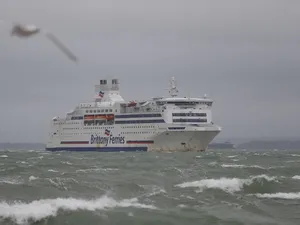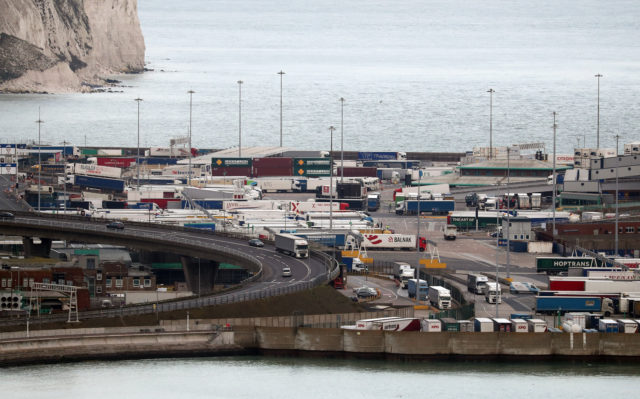Government spends £100m on extra ferries to ease no-deal Brexit pressure
The Department for Transport has taken action to prevent backlogs at Dover.

A Government department has spent more than £100 million on ferries to ease potential problems in the event of a no-deal Brexit.
Documents outlining the £107.7 million agreements say increased border checks in UK ports after Brexit could “cause delivery of critical goods to be delayed” in the event of no deal.
The move was described as “complete madness” by the Liberal Democrats, who said it showed public money was being spent recklessly in a last-minute bid to prepare for a no-deal outcome.
The Department for Transport (DfT) has signed contracts with French firm Brittany Ferries, Danish company DFDS and the UK’s Seaborne to ease pressure on Dover.
The additional crossings are understood to be the equivalent of around 10% of the current traffic on the Dover Strait and will see ports in Poole, Portsmouth, Plymouth, Immingham and Felixstowe used.
Contracts were not put out to tender, with the DfT saying it was a “situation of extreme urgency” brought about by “unforeseeable events”.
DFDS was awarded a contract worth £47.3 million, while Seaborne Freight was given a £13.8 million deal.
The contract with Brittany Ferries is worth £46.6 million, with the company adding 19 return sailings to three routes between the UK and France.
More sailings will travel between Roscoff and Plymouth, Cherbourg and Poole, and Le Havre and Portsmouth, representing a 50% increase on its current schedule.
Christophe Mathieu, Brittany Ferries chief executive, said: “Our priority is to prepare for a no-deal Brexit and to create additional capacity.
“By increasing the number of rotations on routes like Le Havre – Portsmouth we will be able to meet the Department for Transport’s Brexit requirement.
“We will also work hard to minimise impact on existing Brittany Ferries freight customers and passengers, although there may be some changes to some sailing times, for which we apologise in advance.”
A spokesman for the DfT said: “This significant extra capacity is a small but important element of the Department for Transport’s no-deal Brexit planning.

“While remaining committed to working to ensure a deal is reached successfully, the department is helping ensure the rest of Government are fully prepared for a range of scenarios, including a particular focus on a potential no-deal and to mitigate the impact of any Brexit outcome on all transport modes.”
A Liberal Democrat spokesman said: “It is complete madness to see the Government recklessly handing over £100 million on preparing British ports for a no-deal scenario.
“The Government has the power to stop no-deal at any time but instead is spending millions on last-minute contracts.”
Eloise Todd, leader of the Best for Britain campaign for a second EU referendum, said: “The truth is no-deal is not inevitable. This Government has a real choice to make for our country and it does not have to toy with a cliff-edge Brexit.
“The only way forward for the country right now is to put the decision back to the people and put the public at the heart of the decision over our future. People have been locked out of the Brexit process since the 2016 vote – it’s time to bring them back in and let them decide our future.”
Scottish National Party economy spokeswoman Kirsty Blackman said: “The Tory Government’s waste of over £100 million into extra ferries in the event of no-deal is utterly ridiculous.
“It’s in the UK Government’s gift to rule out a no-deal scenario, so they should stop wasting time and taxpayer money by committing to taking a no-deal Brexit off the table.
“The best economic scenario for Scotland – and the UK as a whole – is to remain in the EU, and it’s a democratic outrage that Scotland is being held to ransom by paying for a hard Tory Brexit that it didn’t vote for.”





